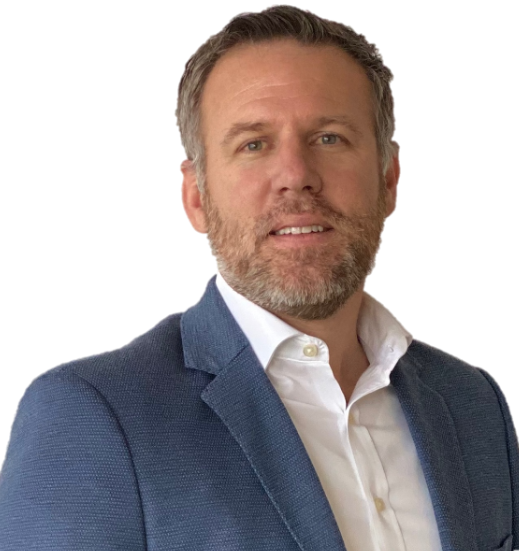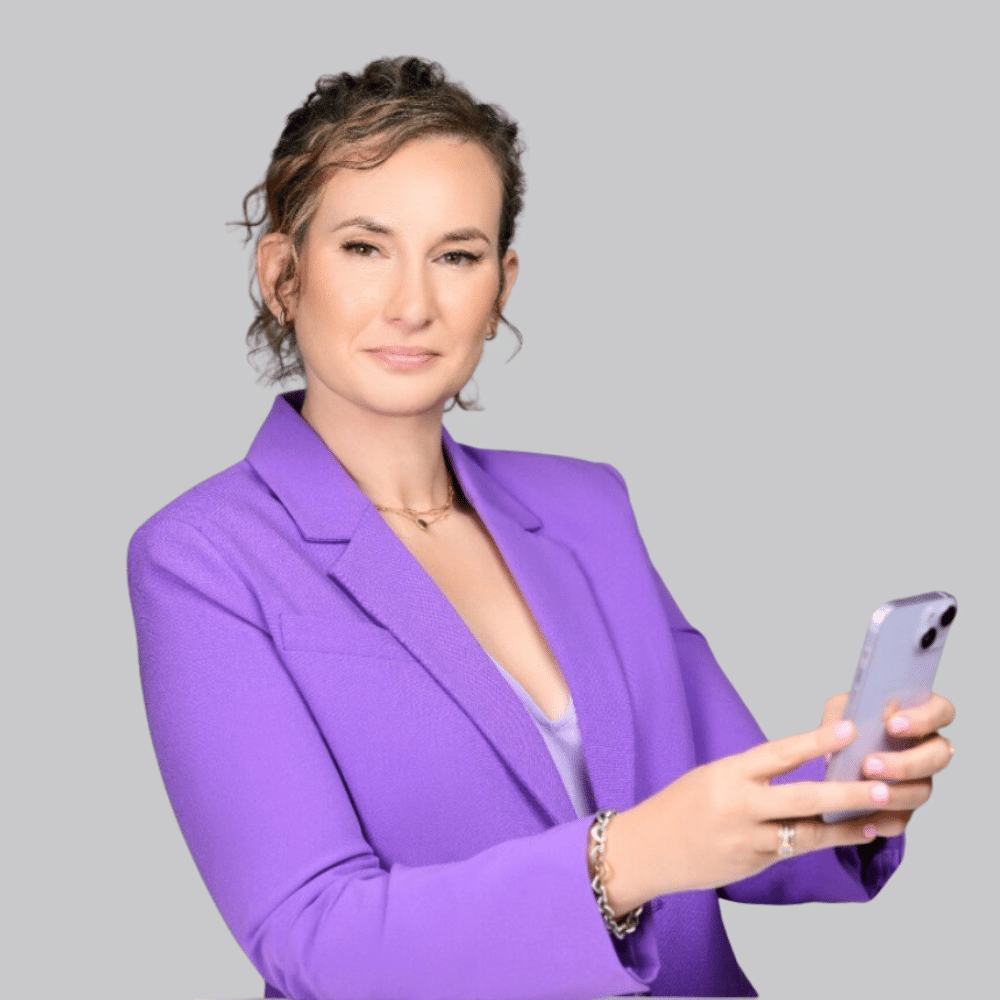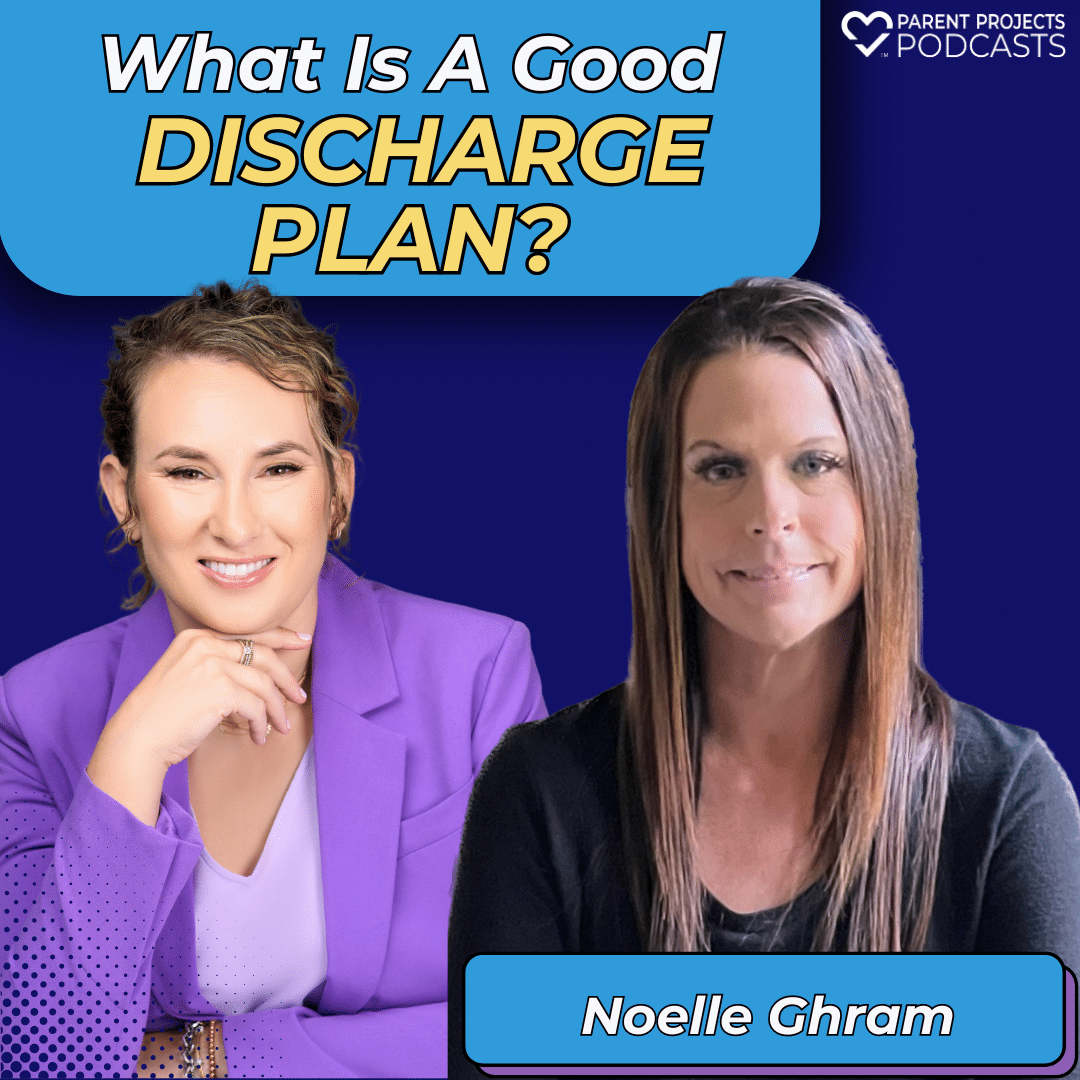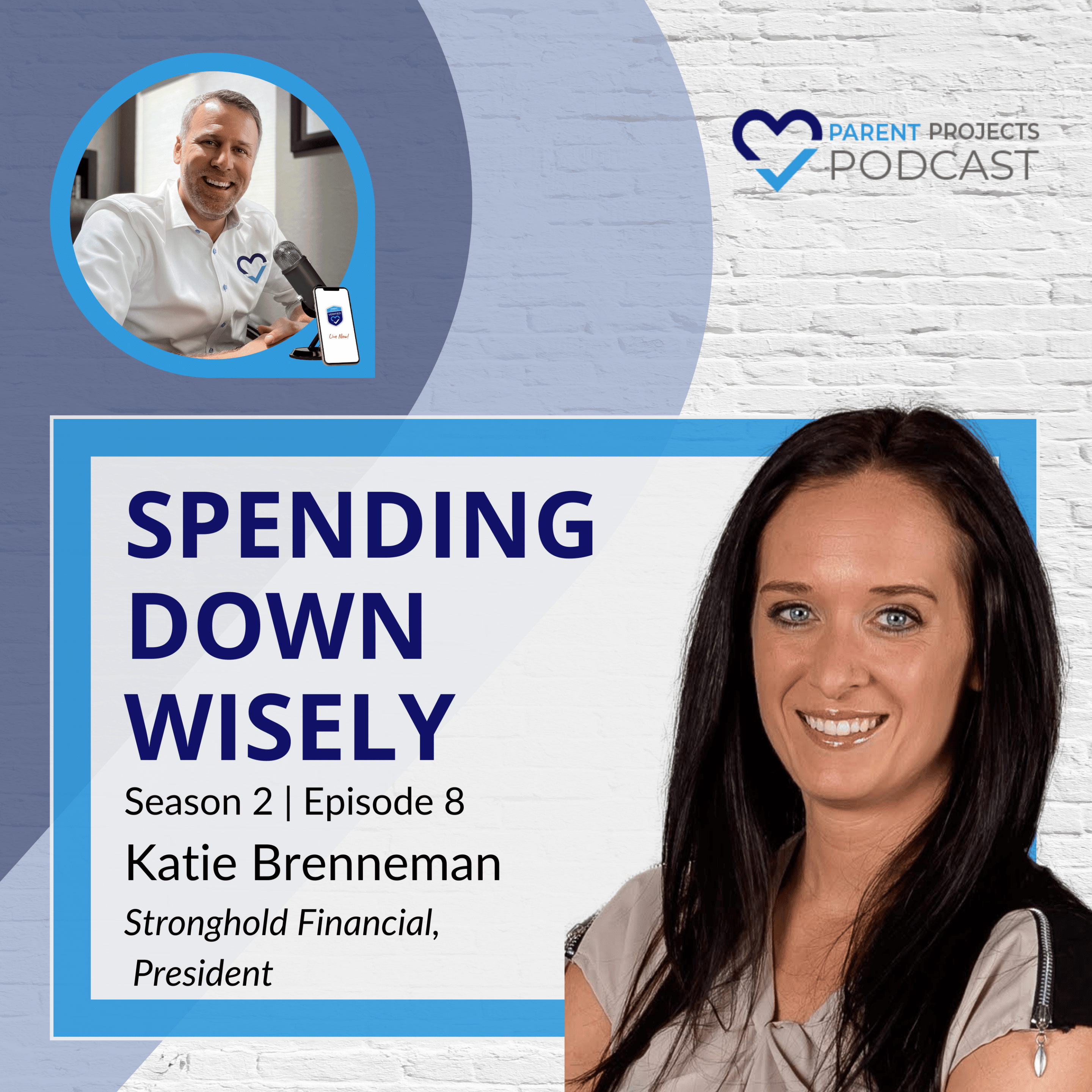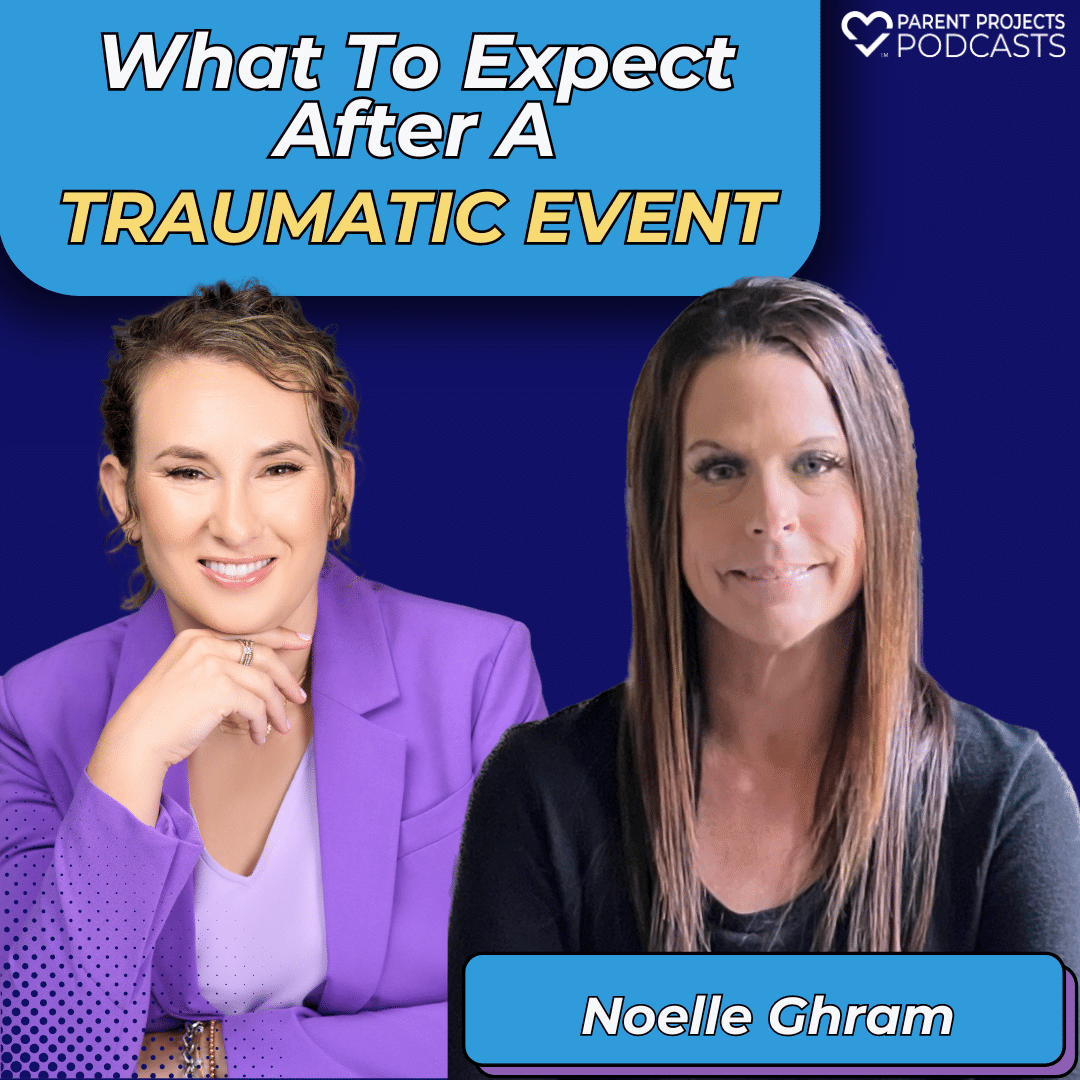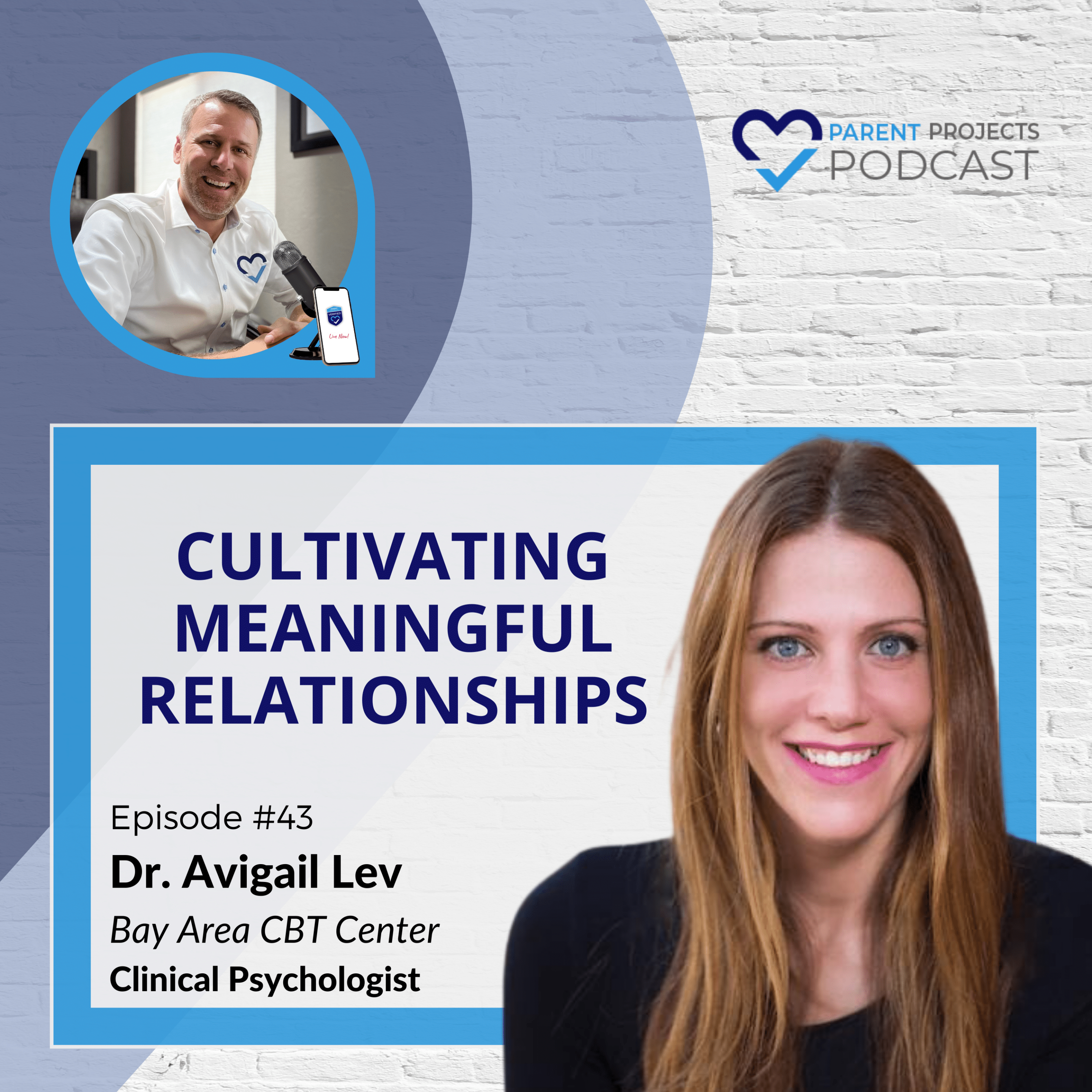Episode Transcript
[00:00:06] Speaker A: Hi, and welcome to aging in America. As you heard, we are a podcast brought to you by parent projects, and I'm just so excited to talk about today's topic of discharge planning. Discharge planning comes from either a hospital stay, a rehab facility. There's just so many different parts that go into making a discharge plan. So to help me with this episode, I have our guest, Noelle Graham. Noelle, welcome to the show.
[00:00:31] Speaker B: Oh, thank you so much for having me.
[00:00:34] Speaker A: You're welcome. We're so excited.
Real quick, I just kind of want people to know that I know you're just as passionate as I am about this.
One of the main reasons that I get really passionate, I think people are going to notice between the two of us, is I am a gerontologist, and a lot of people always say to me, what is a gerontologist? What does that even mean? And it simply means the study of the elderly. So I have a degree in gerontology, so when I look at something such as discharge planning, I really look at it as a gerontologist, how do we make sure that the person is going to be in a safe and secure environment? Do we know they're ready to leave the hospital or a rehab facility? So there's a lot that goes into it. Noelle, let's just kind of jump in. What would you say, in your words, is a discharge plan?
[00:01:21] Speaker B: Oh, it's very all inclusive. And unfortunately, in the hospital setting these days, as insurance is trying to make things go faster and more cost effective, it happens in a minute, and, you know, mom and dad go into the hospital.
They've been very sick. They've been in bed for a couple days. They're getting medically stable. Okay, time to discharge. What? It just completely catches everybody off guard. And so a lot that goes into it is you're going to rely heavily on your case managers. You know, the doctor will consult the case managers, and hopefully, along with that, consult physical, occupational, and speech therapy just to see how their mobility is doing, how they're doing with their self care. Can they get up and go to the bathroom? Can they bathe and dress themselves? What mobility equipment do they need, like a walker or a cane or a wheelchair? And then speech therapy for their swallowing to make sure they're not aspirating, and then their cognition, too. So hopefully, relying on those pt, ot, and speech evals to come in and evaluate your parents and say, you know, man, they would really benefit from home health. Somebody, they're safe to be at home, maybe family checking on them. But home health coming in two to three times a week to build that strength and endurance, maybe do a home safety eval just to look at their home set up to see if there's any equipment or any barriers they need to remove for safety, fall prevention, and then also working with the physician to say, yes, they're medically stable. These are the medications they're going to need at home. Have home health nursing come in, check their vital signs and their medication? Or do they need to go to a rehab facility where they can, you know, they're required to be able to handle 3 hours of therapy throughout the day. Are they strong enough and medically stable enough to do that? Or do they need to go to a skilled nursing facility where their stay would be 14 to 30 days, and sometimes that's a transition period. Can mom and dad go home at all? Right, let's give it a trial run. Let's see if they can get medically more stable. They can get stronger, they can be safer. Can they go home? Or are we looking at LTAC, a long term acute care facility where they. They need more specialized care? They're on a ventilator. They need more medical attention. They're usually there anywhere between 14 to. Gosh, I've seen them up to 60 days or, yeah, or is it time to talk about, hey, mom and dad have been on the struggle bus. They've been in and out of the hospital. They're just medically declining. They're tired. They're making comments, hey, I'm done. I'm tired. I'm ready to go. Okay, well, how can we make them more comfortable? So that's kind of what you have to decide in a very short amount of time, unfortunately. So it's really good to be able to utilize those resources, such as a case manager, like I said, the therapist and the physician, to kind of come up with a plan that everybody's as comfortable as they can be with the discharge process.
[00:04:10] Speaker A: You just gave such a beautiful overview of what a discharge plan is because it isn't just one thing. It is so many different parts that go into letting you, truly the adult child, have some peace of mind that wherever that that parent of theirs or aging loved one decides to go, they're going to have all the resources, like you said.
So one thing I really do want to ask, because you've touched on so many wonderful resources, but first, you kind of touched on it, but how do you know that your parents are ready to go home? Or do you think, like, in your position, do you see it more of people are trying to get them out of the hospital or they're ready on their own.
[00:04:51] Speaker B: I think it depends on the situation. You know, every situation, never black and white. It's kind of, you know, looking at, you know, a good comparison is I kind of think about if I was standing in the doorway and I saw my loved one get out of bed on their own, walk to the bathroom, get up and down from the toilet, maybe do a shower, stand at the sink, brush their teeth, walk safely back, and I would feel comfortable leaving the room. That's when I would be like, okay, they're safe to go home with maybe some. Some support systems.
[00:05:23] Speaker A: Yeah. Some of those resources that you touched on those reasons.
[00:05:26] Speaker B: Exactly. But if they're concerned that the balance is off, they're confused. They're just not moving around very well. They're taking a lot of rest breaks. They're dizzy, they're light headed. They just, you know, they're just a fall risk in general. You kind of use it. You kind of know, like, oh, man.
[00:05:44] Speaker A: You might even say, like, man, this is not a safe time for this. And truly, as you know, and let's make sure our audience knows when people are being readmitted to hospitals, it's not good either. Like, having someone discharge, but with all the safety precautions is ideal so that they do not get readmitted.
[00:06:03] Speaker B: That's right.
[00:06:04] Speaker A: So, yeah, every point you made is correct. Watching out to see, like you said, are they dizzy? Are they able to get to the restroom alone? All such good points.
[00:06:13] Speaker B: Right?
[00:06:14] Speaker A: So you've definitely touched on this. We're just going to kind of dive in because there's just so many different resources to make a good discharge plan. It's incorporating all of them. Like you said, ot, PT, home health, home care, dme. You know, there's just so much. But let's kind of go into, because this is a lot of acronyms, a lot of words. Let's really just kind of start with what is PT versus Ot? Because I do think people are thrown when you say otzen, and it's just as important. So I want to make sure that you can let us know what Ot does and how that incorporates with the discharge plan.
[00:06:49] Speaker B: So I'll just speak to the hospital setting because that's kind of what we're talking about. There's very different roles in very different areas in practice, but in the hospital, physical therapy is working on lower extremity strengthening balance. Do they need a walk or do they need a cane? Building up that long distance endurance of being able to walk out in the hallway, mobility in general, occupational therapy, we work on mobility as well. Sometimes we overlap in that first day or so just because we're just trying to sit people on the side of the bed or standing to even walk to the bathroom. But then we work more into, can they bathe themselves? Can they dress themselves? Can they toilet themselves? Do they need any equipment to help them, like your DMU you mentioned? Do they need a shower chair? Do they need a toilet riser? Adaptive equipment? Do they need a hip kit? So a reacher, a socket, long handled scrub brush, all those things to work on lower extremity dressing so they can do it more independently if they do go home and just kind of looking at what are they going to need in order to be able to go home safely? We also look at vision, cognition. Are they safe? Maybe they can walk to the bathroom or out in the hallway, but they don't know what day it is. They don't know where they are. They're talking about things that happened a long time ago. They don't remember what you just told them about, you know, fall prevention strategies. So we kind of overlap with speech therapy because they also do cognition, but they do kind of more standardized assessments with that and swallowing, we work on in the moment during their self care activities. How are they able to multitask and think about the next step. Think about what the plan is. Think about using the walker correctly and kind of motivating around safely.
[00:08:34] Speaker A: Yeah. When you talk about all these therapies, it really puts it in perspective how much goes into each person's care plan within, like you said, the hospital setting and being discharged. So it all is so important. Yes. One thing I will say, you mentioned the cognitive.
It could not be more true. Like you said, someone can use the restroom, but they might not understand. They may forget. Let's be honest, by the time they get to the restroom, why they walked in there.
[00:08:57] Speaker B: That's right.
[00:08:58] Speaker A: So a big part that I always felt was important was the home health. Excuse me. Yes, home health, but also what the difference between the home care is. So, and I always joke, like, why do they have to sound so similar, home health versus home care? And I can talk a little bit about the home care, and then if you want to touch on the home health, just because I know that deals with the therapies, but the home care is that non medical caregiver that's going to come into the home, you know, and really be with that person, walk into the restroom, watch them eat, cook them meals, make sure while they're home that they don't have falls, that they're being watched, that they don't get that readmittance because they have someone with them. So that is home. Excuse me, home care. And upon discharge. I do think that is a very, very large part of the plan, knowing if that person can go home alone. And I don't know about you, Noelle, so let me know. But I always say, like, yes, you absolutely can count on your family and your neighbors and your friends, but sometimes having that paid help is a little more security, that someone will actually be there.
[00:10:04] Speaker B: Absolutely. Absolutely. And just because you have somebody there doesn't mean it's skilled, right? Maybe they don't know how to help you use their walker correctly, or maybe they don't know what to do to help you if you lose your balance or how to clear the environment. So those stacks of magazines and phone books and cords are out of the way, also taking their vital signs, looking for those, even those minute changes. Man, we just changed dad's blood pressure medicine, and the next day he's dizzy. Oh, the correlation between that, they're just having a bad day. Well, that one bad day, for whatever reason, the next 24 hours, they're in trouble. Whereas if somebody that was skilled, that was in there, had eyes and ears from day to day, can say, oh, this really is an issue. We need to get them looked at.
[00:10:48] Speaker A: Oh, absolutely. So that was home care. If you can touch a little bit on the home health side, and you brought up insurance. I would like to talk about that because going home with home health might sound scary, but the good thing is, and as you know, insurance is a big factor in your home health care plan.
[00:11:07] Speaker B: Absolutely. So home health is really important. I like the fact that therapy is involved with the home health part. There's a big discrepancy. If you say home health, people think, oh, somebody's going to be in my house seven days a week for 8 hours a day to take care of me and do everything for me. Home health is usually two to three times a week. Nursing comes out, does all the meds, does all the vital signs, kind of develops that plan of care. Then ptot and speech come in. Pt and ot speech in the home, like we talked earlier, is so invaluable because we can see them in the home. How are they doing? What modifications do they need to be maybe adjusted? Maybe a grab bar installed? Oh, that's a tub shower. You're going to need a walk in shower or a tub bench. Where does the handheld shower need to be, do they need a toilet riser? It really helps them navigate in their own home environment because what you see somebody do in the hospital in a straight line to and from the bathroom when people are clearing the path because they're healthcare professions professionals and they know what fall risks are. It's completely different in their home. So it's so nice. I always tell people, man, just haven't come out a couple times. A lot of people don't want people in their home, strangers in their home. Plus people have had bad experiences. So you mentioned home health second time and they're like, absolutely not. So that's why it's really good to rely on your case management recommendations for good home health agencies to establish that trust so that when these people do go in the home, they feel comfortable, but just have them come in a couple times at the very least and just see what barriers you have. And like you said, how to prevent those hospital readmissions. So important.
[00:12:40] Speaker A: The barriers is so important. That's where I was going to go. You mentioned even the difference between a walk in tub and or, excuse me, a walk in shower with a tub that they may not be able to get into.
I mean, that alone can be, I hate to say it, but a real big difference between falling or not and something worse happening.
And so I always recommend what you say is have that home health come in, have them check that they're also going to be able to give you resources if you do need to get a walk in shower made, done or, you know, so it is so important and I understand as well. You mentioned like people might have that adversity to have people in their home, but the more you can push your aging loved ones to accept that help, the better off you all will be.
[00:13:28] Speaker B: I've said that before, you know, we're dealing with a very proud generation and they're the ones that are used to parenting, and now we're parenting them and it's just really good to sell it to them in a very dignified way. Hey, mom, dad, I know this is uncomfortable. It might be uncomfortable for me, but this is how we're going to try to keep you at home. Want you to have to go anywhere beside your home. You may have to make a pit stop at rehab or skilled nursing first, but man, if we can get you home, these are kind of the steps we have to be if you're wanting to stay in your own home and kind of, you know, there's probably going to be some give and take and maybe some bartering there a little bit. But, you know, if you can just tell them, like, I'm wanting, I'm not wanting to tell you what to do. I am just trying to use these professional resources to figure out how to keep you at home. Because, let's be honest, it's cheaper to be at home. You know what I mean? Plus, they're in their own home environment. You know, for the most part, people are going to do better at home if you can keep them there safely.
[00:14:27] Speaker A: Yeah, I could not agree more. A lot of people feel that they would heal faster in their own environment. They're comfortable in their own environment.
There's just so much that goes into that. Returning to their safe place.
Yeah.
So we have talked about so many wonderful resources. There's so many more. I mean, we could talk about placement agents if it did come to that, where someone may need to really not go home. I hate to say it, but, you know, that is some people's realities when they're being discharged. Home is not the best place at this time. There's placement agents we can discuss that you can ask for, like you said to your case manager and then hospice as well. Hospice is something else that is being evaluated upon discharge. And same thing. Your case manager would be the one to refer you to what they believe will be the best agency for you, for you and your loved one.
Yeah.
With all these resources, there's just so much. I could talk about it, but there's just so much. You touched on insurance earlier. I'd love to hear from you within the hospital setting what you believe to be the best insurance for the aging population.
[00:15:42] Speaker B: Right. So that's something I really rely heavily in our case managers because that is completely out of my scope. But after speaking with case managers, they're really big about Medicare, part A, B, D plus a supplement. I actually just recently learned that Medicare, all those ABD and then also the supplement, they will cover most things from home health. If you had to make a skilled nursing facility, stay, rehab, long term acute care, home health, hospice, most of that is covered, which she did mention that a lot of times it's more expensive, a little bit, but if you look at the end game, it pays off in the long run and it's just peace of mind. So if mom and dad go into the hospital, or I or my husband go in the hospital, we're covered. Like, yes, we're paying more out of pocket now, but it's going to be cheaper and you're going to get well taken care of. That's the one good thing about Medicare and Medicaid.
[00:16:36] Speaker A: Yeah, it's the last thing as well. People want to worry about when they, when you're deciding, oh, we got to go back to that hospital, you don't want to worry. So like you said, that Medicare part ABD and then a supplement is, I think it's pretty much a nationwide agreement that your best options.
[00:16:57] Speaker B: I've just seen so many people that should not be going home, and because of their insurance, I mean, they're requiring physical assistance to get around it. And they live alone and they're being sent home and they don't have home health. I mean, and guess what? Then they're readmitted or, you know, some catastrophic event happens and they don't get to go home. It's just, it's just really relying on that good insurance to take care of you.
[00:17:20] Speaker A: Again, could not agree more. And then you touched on.
So, yes, they might not have home health every day, but if even getting that home care can be pricey as well, so, yeah, just. You're right. Just having that upfront cost will pay dividends in the long run.
[00:17:36] Speaker B: That's right.
[00:17:38] Speaker A: So we have talked about case managers. They are extremely important. Every hospital has case managers. Sometimes they may be called discharge nurses or their social workers, but case managers is what we're going to call them for today. And right off the bat, you're in that hospital setting every day. Can you let us know what you would do? God forbid it's one of your loved ones, you would seek out a case manager. Would you let them introduce themselves? You tell me what the steps would be.
[00:18:06] Speaker B: I think as soon as I wanted to talk to one, that you just let the nurse know and they can contact the case manager. I'm going to be here from ten to one. I need to leave at 130. I think that, for the most part, is least advice was a case manager would help me plan my day versus just popping in and out of hospital rooms, trying to catch somebody by phone or see if there happened to be there, but just let them know I'm here. This is when I'm going to be here. Here's my number. Here's two numbers so they can get a hold of you. But, yeah, I think it's always good to be very proactive because they, they have a lot of people to take care of and they're just trying to get through their day and all these medical complex patients, it's, it's really good you. And unfortunately, that's kind of how healthcare is now you really, I'm so glad that there's those parent projects because people just need to empower themselves as much as, so that they can be their loved one advocate. Because at the end of the day, you're the one that's involved with the situation front and center. You know, your family member, you know, what mom or dad wants or don't want. You know, it's, it's, it there. And we as healthcare providers rely on you. Whenever I interview a family about how they were doing at home, what their home setups like, I'm relying on them a lot to be able to tell me what's going on. They know their family member. I just met you. Like, where are we going with this? Like, what, what's the end goal? How can we make this best as possible in this terrible situation?
[00:19:22] Speaker A: It is funny you bring that up because I think a lot of people who don't know what they don't know, which is very acceptable. This could be your first time you're going through this care journey with an aging loved 1 may rely on the case manager as they should, but also need to have that input. Like you said, you know, your aging loved one, you know, do they actually want to go home? Would another type of living situation best suit them at this time? So there's a lot that you will need to input. And then, of course, yes, rely on that case manager. Something I always say, you know, let me know if you've thought this before, but when I'm always advocating for patients, I always say to the case manager, would you send your mom there?
[00:20:00] Speaker B: Yes.
[00:20:01] Speaker A: Was that the agency you would use for your mom?
[00:20:04] Speaker B: Right. And talking about that facility, how you just mentioned, I always encourage people, if you have the opportunity to go toward those places, usually, you know, case managers will give you our top two or three without saying those are favorite. Aren't our favorite. They just kind of say, hmm, wink, wink. Try this.
[00:20:20] Speaker A: Gonna say it's a little wink, wink situation.
[00:20:22] Speaker C: Yeah.
[00:20:22] Speaker B: A little nod, nod. We're not supposed to say, but, you know, they want to make sure our patients have excellent care when they leave the hospital too. So thank, thank goodness for that. But I always encourage family members, if you can, if you live locally or you're staying locally, go check those places out and go at mealtime, go at breakfast. Go unannounced.
[00:20:40] Speaker A: What does it look like?
[00:20:42] Speaker B: What does it smell like? What, what, what's happening? Are they, are the, are the residents up in their chair? Are they, what do they look like? Are they being taken care of? Are they being loved on? And then ask to talk to the therapy staff and say, hey, what is a normal length of stay here? Like, what are your goals for people? What does your gym look like? How aggressive are you with therapy? And just kind of get a real feel of the place. Usually it's pretty good. Usually within the first couple of minutes, you're like, yeah, or absolutely not. So I just really encourage people. Also, I would encourage people to look at the center of Medicare and Medicaid Services, the CMS website, because they, they have one to five star ratings, and that is excellent. That Medicare and Medicaid looks at those facilities. Those are updated regularly to say, hey, this is a good facility. So I would also rely on that resource as well.
[00:21:31] Speaker A: Yeah. And, you know, while you took the words out of my mouth, I was going to touch on the ratings because it is true. When these agencies are going into the facilities to rate them, they're the ones who are seeing the things we may miss.
[00:21:43] Speaker B: That's right.
[00:21:43] Speaker A: Yeah. We talked about other resources. So I do want to touch on what a placement agent is.
Placement agent. Just an overview. General concept is someone that's going to be able to be boots on the ground and find your aging loved one a facility, you know, in their zip code, in their budget.
There's so much that goes into it. They know, hey, does this facility have a good director of nursing or is it all smoke and mirrors and that's what you are looking for? I would always recommend using one as well as doing everything you mentioned, Noelle, stopping in unexpectedly, you checking it out, you know, if you don't live local to your loved one, it is tougher. It's why placement agents exist. But if you are local, yeah. Do your own pop ins as well, but count on the knowledge that other people have out in the industry.
[00:22:33] Speaker B: Absolutely.
[00:22:35] Speaker A: So that's great. That is so much wonderful information.
And then when you're working with the case manager, you're building this relationship.
They know what your loved one's insurance is. We've touched on insurance, but they're going to know the insurance. So they're also not going to be able to set you up with an agency that they like but doesn't take your insurance. So that's another. Yeah, it's very important.
[00:22:58] Speaker B: Absolutely.
[00:22:59] Speaker A: Good. All right, good.
And we have gone through so much of this. I'd love to hear a little bit about you, what got you started into OT. It's such a niche and wonderful service that you're providing.
[00:23:14] Speaker B: So my dad was actually a pharmacist at a hospital here in Wichita, and I used to. I would love to go visit him in the hospital. I don't know what was wrong with me because most people run the other direction, but I just love the collaborative effort of people actually working together to take care of other people. And I know that sounds really corny, but that's. That was always just really important to me to be able to have a career where I could actually help people. And I'm not good with math or chemistry, so pharmacy was out, and I didn't feel like it was enough people interaction. I don't trust myself with needles or medications, so nursing was clearly not there. So I just. And I loved occupational therapy because it's a little bit of pt, it's a little bit of speech therapy. I feel like it really encompasses the whole person, looking at a lot of different aspects and really getting people back to being able to go home and do the things they enjoy to do. So it just seemed kind of like a no brainer for me.
[00:24:09] Speaker A: Oh, how wonderful. I mean, OT and pts are needed everywhere, so that's. Yeah, it's wonderful.
All right, so, you know, there's a lot that goes into this. As I mentioned, we're going to talk about the action steps of what it is if your loved one ends up in that hospital room. So, as we mentioned, it's really getting to know your case manager that it's on, that's assigned to your loved one. I loved what you said. Actually, I didn't get a touch on it before, but giving them that time line of your availability is going to help them while they're planning their day. And like you said, they're busy. They are busy people. We all are. But seeing you is also going to be on their to do list, so giving them that time will help. So that was great.
And then, you know, knowing the insurance that your loved one has, what will be needed on the discharge plan, that's very individualized to them, which we talked about could be the home health, the home care, the what, physical therapy or just therapy services are needed. Am I missing anything on our action steps?
[00:25:13] Speaker B: Honestly, I would really encourage people to have the conversation before it happens. Mom, dad, you fall, you get sick. What if you need to go to rehab? What if you need to go to skilled nursing facility?
This is what we need to be able to do to have you stay at home. Should you get in the hospital, you may have to go smart, like, have those conversations before, so it's not such a. Oh, my gosh, I, you know, had a UTI, urinary tract infection. I had to go to the hospital, and now I've been in bed for three days and I can't go home. Why? It was just a urinary tract infection. Right. So just having those conversations, which are kind of uncomfortable sometimes, but at least you're. You've already prepped, you've already had the conversation, so it's not just a slap in the face, like, oh, yeah, we. We did talk about that. You're right. I've been really sick. I'm not steady on my feet. I want to eventually be able to go back home and then do as much education as you can. But I think it's, it used to be I'm going to an old person's home or an old timer's home. Right. And so it's having that conversation. I hate the term skilled nursing facility. I wish we could find something else to call it because it just has such a negative connotation. So I just kind of say, well, there's a rehab part of a facility where you'll go to get more therapy. It's at your own pace. We don't feel rushed. When you're ready to go home, we try to, you know, they try to get you home as safely as possible. But it's not boot camp. It's not 3 hours of therapy a day or, hey, mom and dad, this is going to be a week at a rehab stay. It is going to be boot camp. We know you're on the verge of almost getting home. Let's just bridge the gap and get you home safely so you don't have to come back. But having those conversations, you know, talk with them about home health, what the expectations are there as well. So if you can start to have those conversations, like, we're just making a plan, a future plan, this may not happen for another five years. Hopefully it doesn't. But if it does, let's just have a plan so we're all on the same page and we can kind of get that conversation started so it's not so a rush. You know, mom's being told she's going to skilled nursing and next day she leaves at 10:00 a.m. right. So just having those pre conversations, if.
[00:27:18] Speaker A: At all possible, the pre conversations, doing it before you need it, it's such a common theme and it is so important. So I really do agree with you. And like you said, it's not going to be comfortable, but apparent projects and myself and so many others have so many great tips on how to talk to your loved ones about it.
[00:27:37] Speaker B: Excellent.
[00:27:38] Speaker A: So thank you, Noelle, for being here. I know you and I could talk more about different therapies offered and different resources, but this was such a great, great topic and to get so many people who might not know educated about the discharge planning process.
So thank you again. Be sure to follow us at parentprojects on all your favorite social platforms. Noelle, just really thank you for sharing your time, your talents, and your treasures with us.
[00:28:06] Speaker B: Thank you so much for having me. Appreciate it.
[00:28:13] Speaker C: Well, that's it for the team this week, and thanks for joining us. If you enjoyed the content, remember to subscribe and share this episode on the app that you're using right now. Your reviews and your I, they really help us expand our reach as well as our perspectives. So if you have time, also drop us a note. Let us know how we're doing for tips and tools to clarify your parent project, simplify communication with your stakeholders, and verify the professionals that you choose. You can find us on YouTube, follow us on Instagram and Facebook. Thanks again for trusting us until our next episode. Behold and be held.
[00:28:46] Speaker D: Thank you for listening to this parent projects podcast production.
To access our show notes, resources or forums, join us on your favorite social media platform or go to parentprojects.com.
this show is for informational and educational purposes only.
Before making any decisions, consult a professional credentialed in your local area.
This show is copyrighted by Family Media and Technology Group, Inc.
And parent Projects, LLC.
Written permissions must be granted before syndication or rebroadcast.
